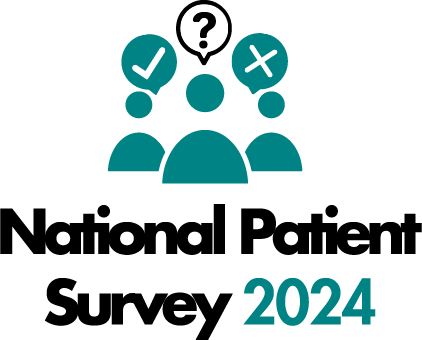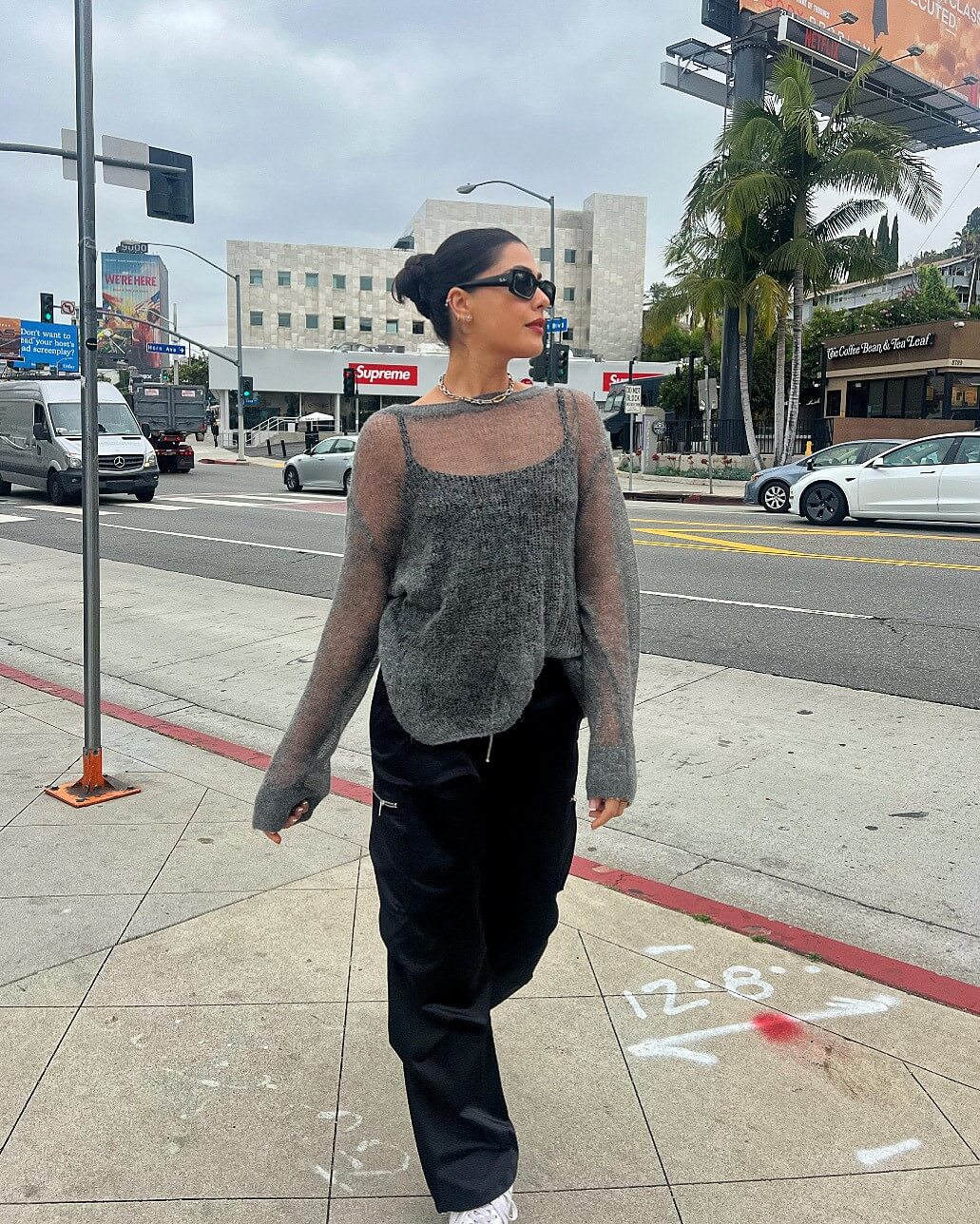 Our National Patient Survey 2024 report is now live. Thank you to all those that shared their experiences. Read our report here.
Our National Patient Survey 2024 report is now live. Thank you to all those that shared their experiences. Read our report here.Fertility preservation before chemotherapy: “Freezing my eggs was a choice that empowered me”
In this blog, Lauren Firenze Gill shares her experience of freezing her eggs before undergoing chemotherapy.
When I was diagnosed with cancer, I never imagined I’d be navigating the world of fertility treatment. It was a world full of medical jargon, injections, and a series of decisions that I never thought I’d have to make. Yet, here I am, sharing my journey of freezing my eggs before undergoing chemotherapy!
At 25, when I was diagnosed with cancer, the idea of freezing my eggs seemed like just another thing to add to my growing list of worries. I had no idea what fertility treatment entailed: how long it would take, how much it would hurt, or even if it would guarantee that I could have children later on. The conversation first came up during my consultation with my doctor, as he discussed chemotherapy options. He mentioned the risk that the chemo could affect my fertility, and that’s when the word “fertility” came into the picture.
To be honest, the idea of kids in the future wasn’t something I’d thought about at all. I was just starting to date someone, and the concept of starting a family seemed far off. But my doctor, who was incredibly kind and thoughtful, encouraged me to consider freezing my eggs, framing it as a gift for my future self (even if I didn’t want kids). His advice really stuck with me. He said: "I have a daughter your age and if she was in this situation, as her dad, I’d encourage her to freeze her eggs to have a backup plan." That made me pause and think “Why not?”.
So, despite feeling unsure, I went ahead with the decision to freeze my eggs! Looking back, I’m incredibly grateful that I did. It gave me the peace of mind to focus on the things that mattered—like healing and living my life, without the pressure of worrying about my fertility in the future. Fast forward a few years, and I’m in a happy, committed relationship, and I know I have options for starting a family thanks to that decision.
If you’re ever in a situation where fertility treatment is presented to you, remember that there’s no right or wrong answer. It’s about what feels right for you and your future. Freezing eggs isn’t a guarantee of children, but it’s a way to give yourself a potential option down the line.
For anyone who finds themselves reading this being in a similar decision-making situation, wondering what fertility treatment actually looks like, let me walk you through my experience. I was referred to Nurture Fertility Clinic in Nottingham, and I have to give a huge shout-out to them for making the process as smooth as possible. From the moment I walked in, I felt welcomed and supported. The clinic offered tea, magazines, and even biscuits—it really did feel like a cosy place to be, considering the circumstances.
The fertility treatment itself took about two to two and a half weeks. It started with blood tests and an ovarian scan, where they inserted a small camera to assess the condition of my ovaries. Once that was done, we mapped out a plan to ensure everything aligned with my chemotherapy schedule.
The treatment involved multiple appointments in the first couple of weeks, which felt a bit overwhelming at the time. I had to go in three to four times a week for blood tests and scans. The physical toll wasn’t too bad but, mentally, it felt like one more thing on my plate. Fortunately, I had a lot of support from family, and that made a world of difference.
The injections were probably the biggest challenge for me. At first, I resisted them, but eventually, they became part of my routine. I had to inject myself daily to stimulate my ovaries and help the eggs grow. It wasn’t easy, especially at first, but it became surprisingly manageable over time. In fact, when I went to Barcelona for a short getaway, I brought my injections with me and did them in my hotel room—talk about multi-tasking!
Once I’d completed the initial injections, the focus shifted to monitoring my follicles and eggs. With regular check-ups, the doctors and nurses tracked my progress, measuring how the eggs were growing and developing.
The next phase was the final injection to produce multiple eggs in preparation for retrieval. It’s taken the day before the egg retrieval procedure. The nurse told me exactly when to take it, and then it was time to show up at the fertility clinic the following day.
That morning felt like the culmination of what had been a whirlwind journey. In just two and a half weeks, I had gone from knowing nothing about fertility treatments to injecting myself with medications and having blood tests to monitor the health of my follicles. I had mixed feelings before the retrieval; the scans had shown that I had a good number of healthy follicles, but there was always a bit of uncertainty.
On the day of retrieval, I was put under anesthesia and dressed in a hospital gown. The procedure itself was quick, lasting around 20-25 minutes, but I was asleep for it. When I woke up, the first thing I noticed was how much lighter and less bloated I felt. The discomfort and swelling from the injections had eased. My mom, being the wonderful person she is, had brought me snacks to raise my blood sugar levels—granola, a protein bar, and some water. It was a small but thoughtful gesture that made all the difference as I woke up feeling drowsy but relieved.
Then came the moment I had been anxiously waiting for: How many eggs had I been able to retrieve? I’d heard that the average number of eggs retrieved was about 13-15, so when the nurse told me I had 37, I was ecstatic. I had overproduced. It was a huge win, especially knowing I would be starting chemotherapy soon, which might affect my fertility in the future. However, not all 37 eggs would be viable. After some testing, I was told that 33 of them could be frozen, which felt like a huge relief.
But, as with anything in life, there was a downside. Because I had overproduced eggs, I developed ovarian hyperstimulation syndrome (OHSS). The symptoms were brutal. The day after the retrieval, I was in a lot of pain, bloated, dizzy, and utterly drained. I looked like I was four months pregnant—my stomach was that swollen. I had to take a week or so to recover, which meant taking time off work and resting. If you’re going through a similar process, be prepared for this.
Once my body began to calm down, I focused on nourishing myself with good food, drinking plenty of water, and getting the rest I needed. Slowly, I started to feel better.
Looking back, I’m incredibly grateful that I froze my eggs. I was 25 at the time, and I had no idea what the future would hold in terms of relationships, family, or career. It felt like a huge decision to make, but now, at 30, I’m so thankful for that choice. My perspective on having children has shifted over the years. Right now, it’s not something I’m planning on in the near future, but I know I have options. Having my eggs frozen gives me peace of mind, knowing that I don’t have to rush into decisions about starting a family.
I understand that this path isn’t for everyone. Fertility treatments can be an intensely personal decision, and what works for one person might not work for another. But for me, freezing my eggs was a choice that empowered me.
My Top 3 Tips for Anyone Considering Fertility Treatment!
- Drink a ton of water: Your body is going through a lot during ovarian stimulation. You’re essentially creating eggs, and staying hydrated is crucial. I recommend doubling your usual water intake.
- Eat healthily: Your body is working hard to produce the healthiest eggs possible. Eat plenty of nutritious foods and take vitamins to support your body’s needs. After the egg retrieval, nourishing yourself is key to recovery.
- Rest, rest, rest: It may sound simple, but listen to your body. Don’t push yourself too hard. Your body is going through a massive hormonal shift, and you’ll need time to recover. Rest is essential.
If you’re considering egg freezing, whether for health reasons, career choices, or personal reasons, I hope this gives you some insight. The journey may seem overwhelming, but you’re not alone.

About the author:
Lauren Firenze Gill is a stage 4 cancer survivor who was diagnosed at 25 and is now in remission. Before she started chemotherapy, she made the decision to freeze her eggs in case the treatment affected her fertility and to provide her with potential options for the future. She has since launched her own podcast, F The Noise, to share hers and others’ stories who have also faced life-altering experiences.
You can follow Lauren on Instagram: @laurenfirenzegill and @fthenoise_.
Review date: 4 February 2027

